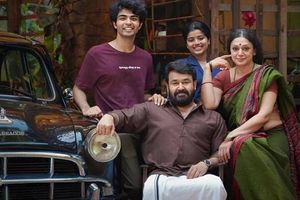Saudi Arabia has recently made significant updates to its family visit visa regulations and Umrah visa processes, responding to increased demand from expatriates and pilgrims. These modifications aim to facilitate smoother entry and experience for those seeking to gather with family and undertake religious duties.
The General Directorate of Passports has announced new conditions for family visit visas, enhancing the experience for expatriates. Key among these changes is the requirement for applicants to have passports valid for at least six months. The recent announcement has brought relief as it allows foreign residents, who often face hurdles when trying to bring family members for extended stays, to invite close relatives to share their lives more fully.
According to the official directive, applicants must also provide proof of vaccinations, and submit recent photographs sized 4x6, alongside details of the intended family members to be visited. The new rules will enable family visits to become more streamlined, affirming Saudi Arabia’s commitment to the welfare of its expatriate community. Visa applications can be submitted electronically through the Saudi online visa platform, making the process accessible and straightforward.
"The family visit visa will now require the applicant’s passport to be valid for at least six months," stated the Saudi General Directorate of Passports. This directive is part of broader reforms aimed at enhancing the stability and happiness of expatriate families.
Meanwhile, the Ministry of Hajj and Umrah has also taken steps to revamp the Umrah visa process. With unprecedented numbers of pilgrims joining the ritual, which has seen participation reach up to 750,000 per month, adjustments were deemed necessary. The ministry has announced adjustments to the duration of Umrah visas, now allowing pilgrims to perform the rite earlier than previous years—up to 15 days before the traditional start date.
"The Ministry has adjusted the duration of the Umrah visa to accommodate the influx of pilgrims," explained officials. The move is anticipated to ease crowding during peak pilgrimage times and provide more opportunity for worship.
Further supporting these initiatives is the government's commitment to enhancing the infrastructure at holy sites. This includes improving transportation options for pilgrims traveling between Mecca and Medina, increasing hotel capacity, and ensuring there is adequate medical and security resources available.
Post the Hajj season adjustments, extensive preparations are underway to welcome the global Muslim community. The Ministry has been proactive, planning logistics and accommodation to facilitate the expected increase of visitors. This includes establishing modern transport systems and reinforcing hospitality standards within hotels and accommodations serving incoming pilgrims.
Significant attention is drawn to the legislative changes which promise to keep the flow of family visits unfettered. Expatriates can now look forward to not just hosting family members, but also spending uninterrupted time together, laying the groundwork for stronger familial bonds.
For future visit plans, it is worth noting the conditions around extending the family visit visa. This can be done multiple times, but cannot exceed 180 days. Not adhering to these renewal regulations could lead to penalties, including fines and deportations.
The regulations will take effect from early February 2025, setting up potential pitfalls for those unprepared for the changed dynamics of family visits. Residents are encouraged to familiarize themselves with the online application system provided by the Saudi government to avoid any delays or complications.
These improvements mark a continuing trend within the Kingdom focused on inclusion and expansion of religious and familial cohesion. The adjustments to visas reflect both government intentions to manage increasing people flow effectively and the needs of those residing abroad seeking connection with family and faith.
The response from the expatriate community has been largely positive, with many expressing relief at the chance to employ these family visit rules. Meanwhile, the Ministry of Hajj and Umrah insists it’s dedicated to maintaining high standards for pilgrims, promising care and efficient management as they welcome more visitors than ever.
Overall, with these significant developments, the Saudi government demonstrates its intent to create conditions conducive to family unity and faith-filled experience within its borders, ensuring visitors can enjoy their time without bureaucratic burden.
Saudi Arabia’s commitment to developing its systems reflects broader ambitions to attract pilgrims worldwide and create lasting familial relationships, setting new patterns for possible future adjustments ensuring everyone finds their place within this welcoming Kingdom.



